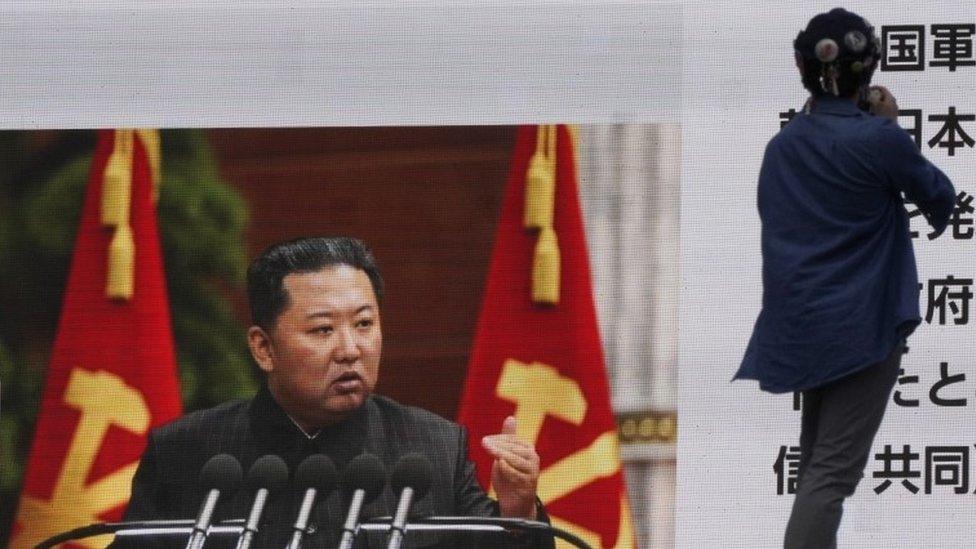North Korea's Kim Jong-un faces 'paradise on Earth' lawsuit
- Published

The plaintiffs demand 100m yen in compensation but accept it might not be paid
North Korea's leader Kim Jong-un should pay damages for a 1959-84 scheme that saw more than 90,000 people move there from Japan, a Tokyo court is hearing.
The repatriation campaign was later condemned by some as "state kidnapping".
Five people who took part and later escaped the North have demanded 100m yen ($880,000; 拢640,000) each.
They do not expect Mr Kim either to appear or to pay up, but hope a ruling may help in future negotiations.
Thousands of Koreans moved to Japan - many against their will - during its colonial rule of the Korean peninsula from 1910 to 1945. The vast majority of people involved in the resettlement scheme were ethnic Koreans being sold a vision of the "Fatherland" as "paradise" - and some Japanese spouses went with them.
Both North Korea and Japan supported the campaign.
The North was desperate to rebuild after being ravaged by World War Two and the Korean War.
Japan regarded the Koreans as outsiders and was happy to help with their relocation.
The combination of discrimination in Japan and North Korean propaganda promising an idyllic life of free healthcare, education and jobs in the homeland was a huge temptation.
For many the reality was forced manual labour in farms, mines or factories, violation of human rights, and an inability to leave.
The court case has a symbolic feel - the five plaintiffs accept that.
The North needed labour after devastation in the Korean War
The four ethnic Koreans, and the Japanese wife of a Korean who joined the programme, all later defected back to Japan.
The plaintiffs' lawyer, Kenji Fukuda, has said: "We don't expect North Korea to accept a decision nor pay the damages."
But if they win "we hope that the Japanese government would be able to negotiate with North Korea".
The countries have no formal diplomatic relations.
Mr Kim is named as he is the current leader of the North.
The lawsuit claims the North deceived plaintiffs by "false advertising to relocate to North Korea", where "the enjoyment of human rights was generally impossible".
One of the plaintiffs, ethnic Korean Eiko Kawasaki, 79, told the Associated Press none would have gone if they had known what awaited. She fled the North in 2003, leaving behind her adult children.
Another struggler for compensation is Lee Tae-kyung, who sailed to the North aged eight in 1960.
"We were told we were going to a 'paradise on Earth'. Instead, we were taken to a hell and denied a most basic human right: the freedom to leave."
Mr Lee fled North Korea after 46 years.
Related topics
- Published7 February 2021